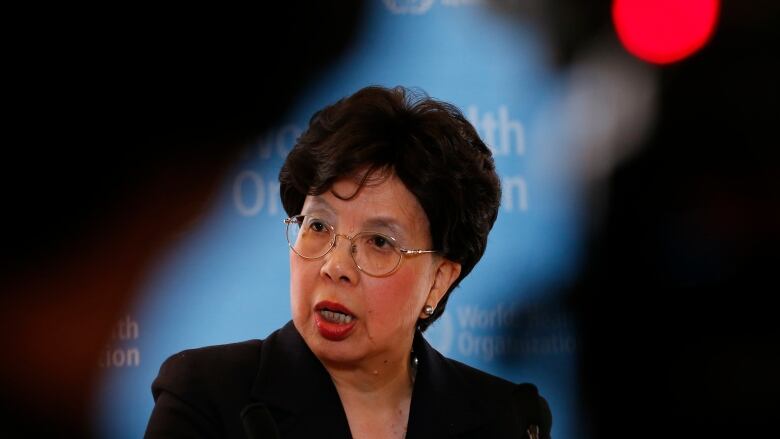WHO launches $100M contingency fund for emergencies like Ebola
'We ought to have reacted far earlier'

The World Health Organization is setting up a $100 million contingency fund to ensure that the U.N. agency will not be "overwhelmed" by a major crisis again as it was with Ebola.
The WHO and director-general Margaret Chan have come under fire for their slow response to West Africa's Ebola epidemic, which began in Guinea in December 2013 but was not declared an international public health emergency until August 2014.
"I do not ever again want to see this organisation faced with a situation it is not prepared, staffed, funded, or administratively set up to manage," Chan told health ministers on Monday at the start of the WHO's annual nine-day assembly.
"I plan to complete these changes by the end of the year."
Chan, a former health director of Hong Kong at the helm of the WHO since Jan. 2007, said that WHO had been "overwhelmed" by the Ebola epidemic that has killed more than 11,000 people in Guinea, Liberia and Sierra Leone.
Didn't consider resigning
Asked later by a reporter whether she had considered resigning or had been asked to, she replied: "The answer is no. Nobody ever asked me. The buck stops with me. As a responsible leader you need to learn lessons and make the right changes."
Earlier, German Chancellor Angela Merkel told the WHO's 194 member states that the organization must streamline management to respond quickly to crises like the "Ebola catastrophe".
"We ought to have reacted far earlier," she said.
"I am convinced that if we act faster and have a clear command structure in place, we will be better equipped to combat a crisis like Ebola next time that happens," Merkel said.
"The WHO is the only international organization that has universal political legitimacy on global health issues. This is why it is so important to render its structures more efficient."
Guinea has seen a spate of new Ebola cases due to transmissions at funerals, a worrying sign as it seeks to stamp out the epidemic, a health official said on Friday.
Liberia became the first of the three hardest-hit countries to be declared free of the virus this month, completing a 42-day period without a case.
Guinea and Sierra Leone reported 9 confirmed cases in the week to 10 May, the lowest weekly total this year, WHO says.